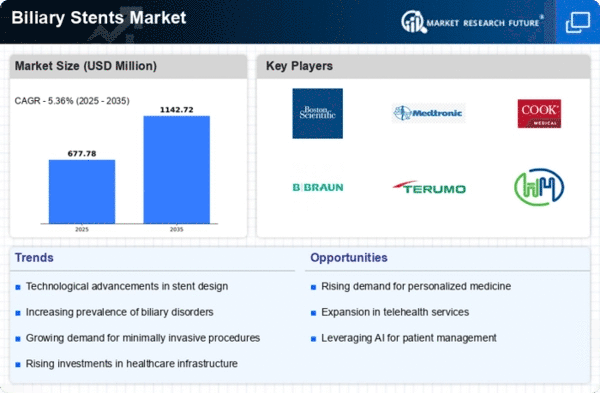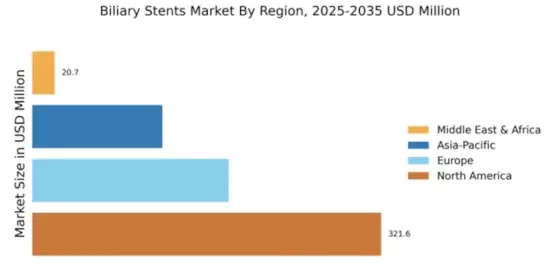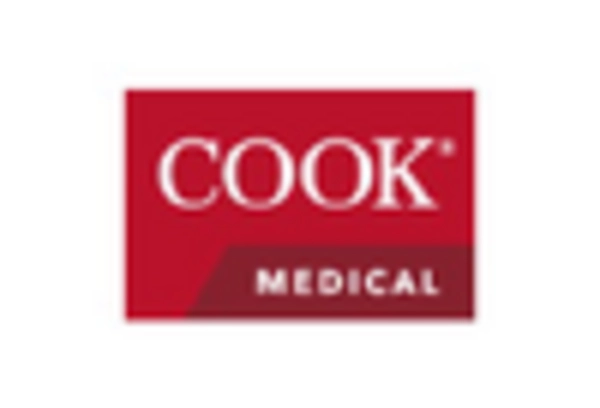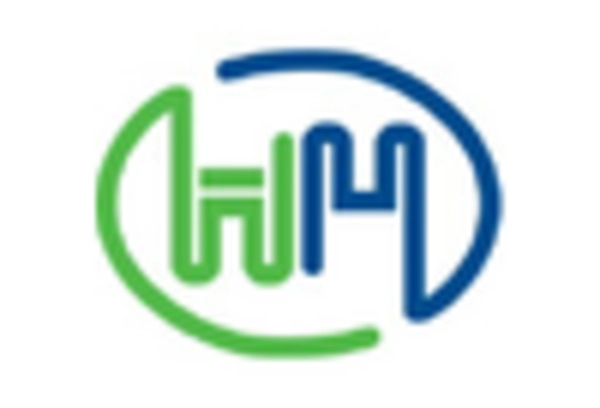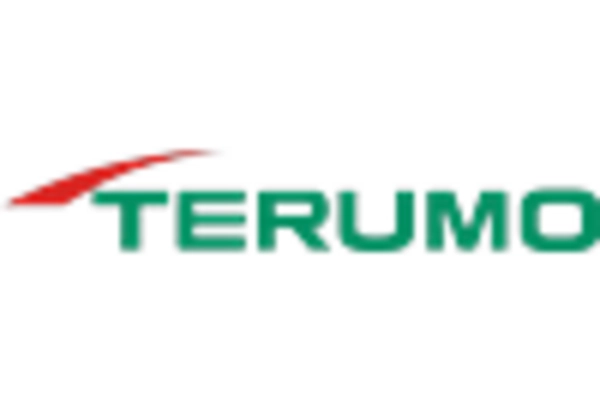Market Growth Projections
The Global Biliary Stent Market Industry is projected to experience substantial growth in the coming years. The market value is expected to rise from 0.64 USD Billion in 2024 to 1.14 USD Billion by 2035, reflecting a compound annual growth rate of 5.37% from 2025 to 2035. This growth trajectory suggests a robust demand for biliary stents driven by factors such as increasing incidence of biliary disorders, technological advancements, and rising healthcare expenditures. As the market evolves, stakeholders are likely to focus on innovation and improving patient outcomes, further solidifying the industry's position in the global healthcare landscape.
Growing Geriatric Population
The aging population worldwide is a significant driver for the Global Biliary Stent Market Industry. Older adults are more susceptible to biliary disorders, necessitating medical interventions such as stenting. According to demographic studies, the global population aged 65 and older is projected to reach 1.5 billion by 2050. This demographic shift is likely to increase the demand for biliary stents, as older patients often present with complex health issues requiring specialized care. Consequently, healthcare systems are adapting to meet this growing need, further fueling market growth as they invest in advanced biliary stenting solutions.
Increasing Healthcare Expenditure
Rising healthcare expenditure across various regions is positively impacting the Global Biliary Stent Market Industry. Governments and private sectors are investing more in healthcare infrastructure, leading to improved access to advanced medical technologies, including biliary stents. For instance, countries in Asia-Pacific are witnessing significant increases in healthcare budgets, which facilitate the procurement of innovative stenting solutions. This trend is expected to enhance the availability of biliary stents in hospitals and clinics, thereby driving market growth. As healthcare spending continues to rise, the market is likely to benefit from increased adoption rates and improved patient outcomes.
Rising Incidence of Biliary Disorders
The Global Biliary Stent Market Industry is experiencing growth due to the increasing prevalence of biliary disorders, such as cholangiocarcinoma and gallstones. These conditions necessitate the use of biliary stents for effective management and treatment. For instance, the World Health Organization indicates that the incidence of cholangiocarcinoma is rising globally, particularly in regions with high rates of liver disease. As more patients require intervention, the demand for biliary stents is expected to rise, contributing to the market's expansion. This trend is anticipated to drive the market value from 0.64 USD Billion in 2024 to an estimated 1.14 USD Billion by 2035.
Regulatory Approvals and Market Expansion
The Global Biliary Stent Market Industry is also influenced by the regulatory landscape, which plays a crucial role in market expansion. Recent approvals for new biliary stent products by health authorities have opened up opportunities for manufacturers to introduce innovative solutions. For example, the approval of new drug-eluting stents has provided clinicians with more options for managing biliary obstructions. These regulatory advancements not only enhance competition among manufacturers but also improve patient care by offering safer and more effective treatment options. As more products gain approval, the market is likely to see increased growth and diversification.
Technological Advancements in Stent Design
Innovations in biliary stent technology are propelling the Global Biliary Stent Market Industry forward. Advanced materials and designs, such as biodegradable stents and drug-eluting stents, enhance patient outcomes and reduce complications. For example, the introduction of self-expanding metal stents has improved the efficacy of biliary drainage procedures. These advancements not only improve the quality of care but also increase the adoption rates among healthcare providers. As the market evolves, these technological improvements are likely to attract investment and drive growth, potentially leading to a compound annual growth rate of 5.37% from 2025 to 2035.


